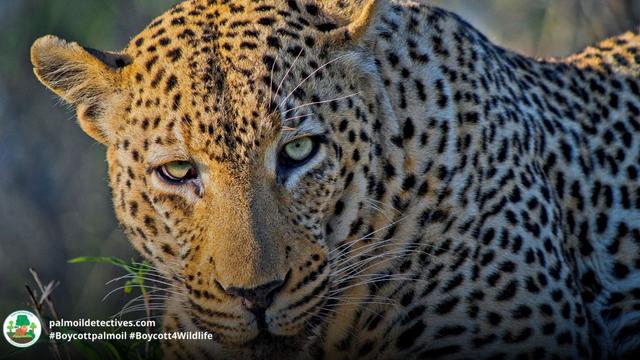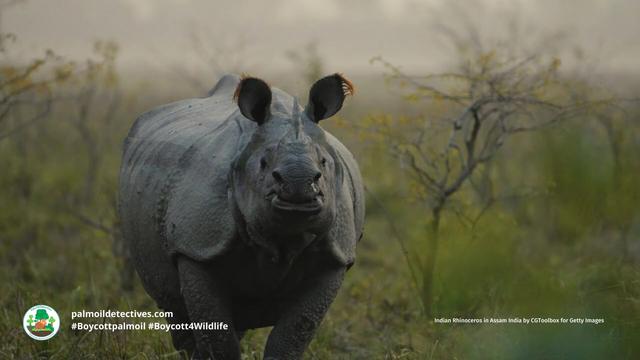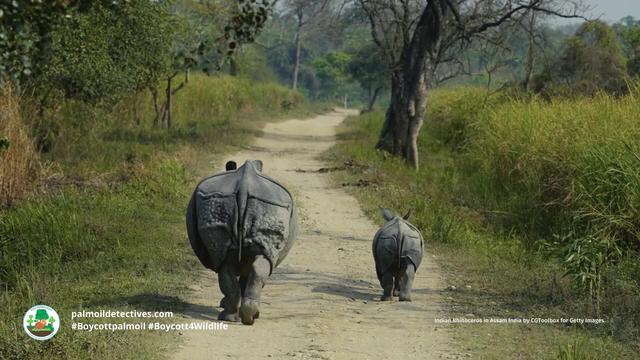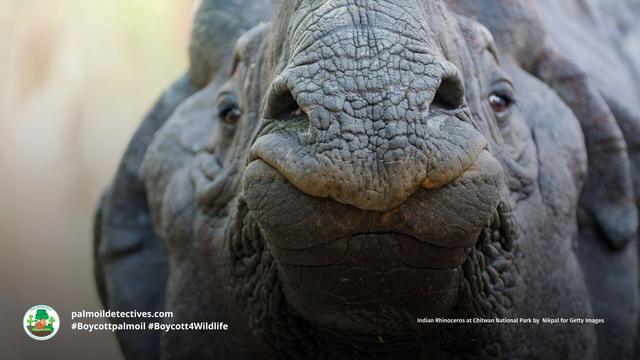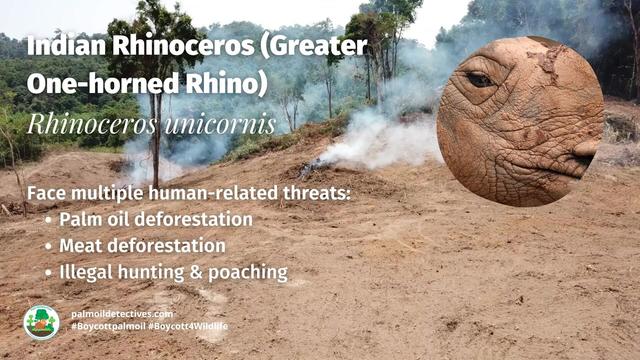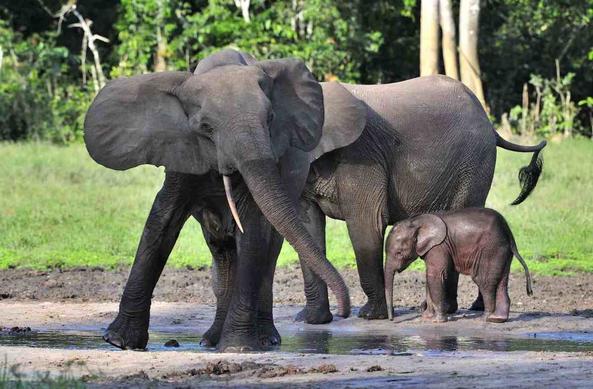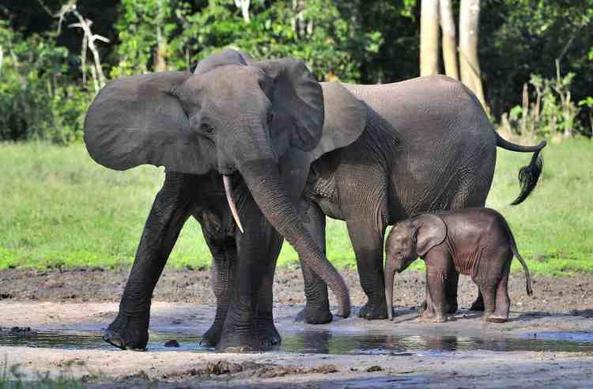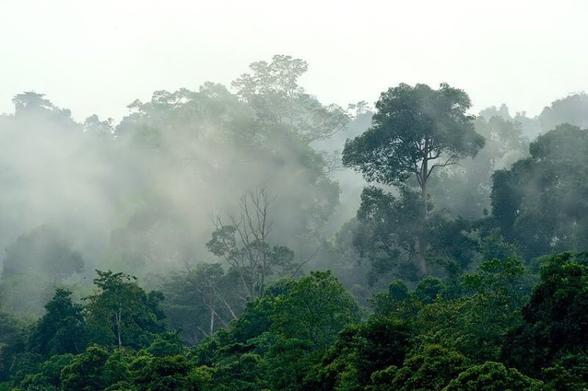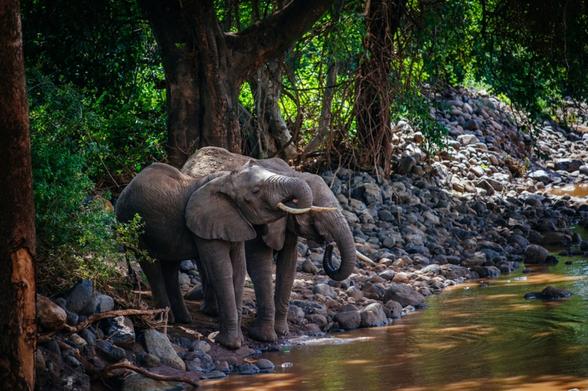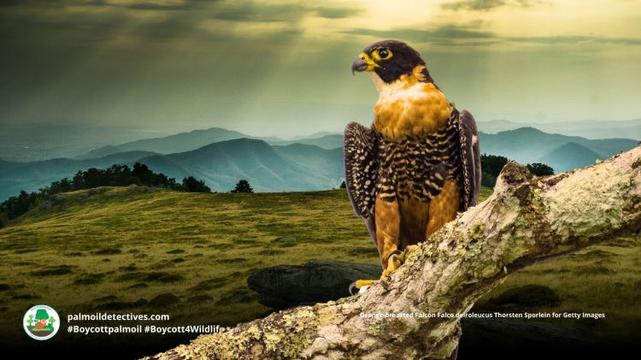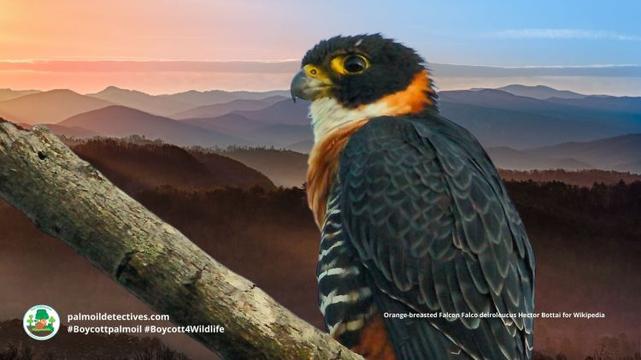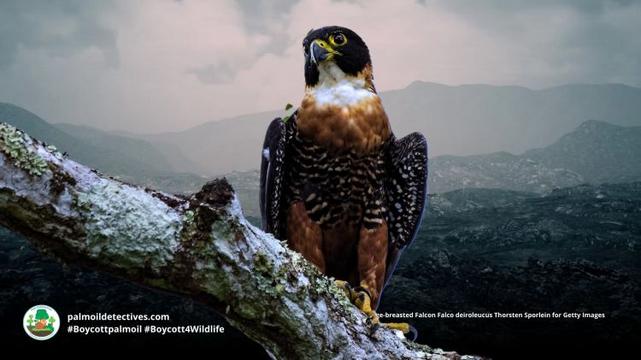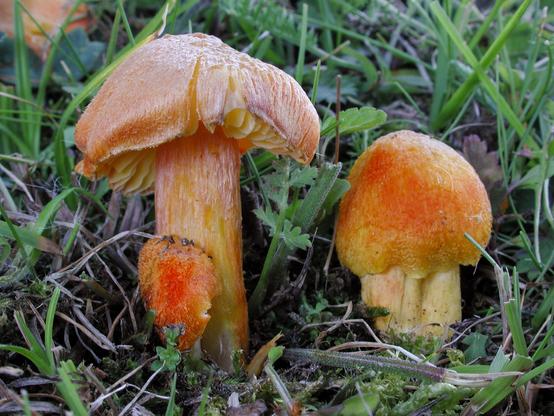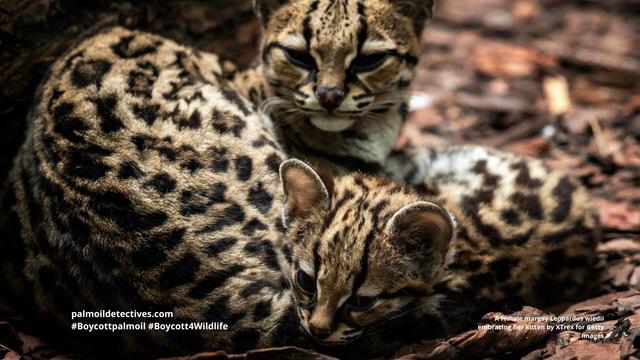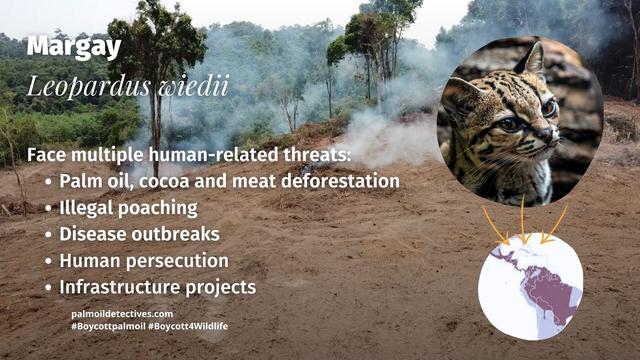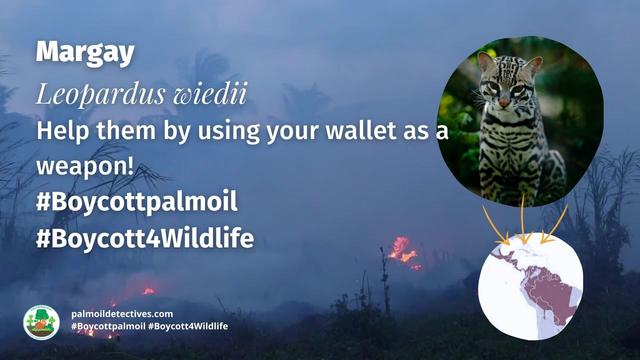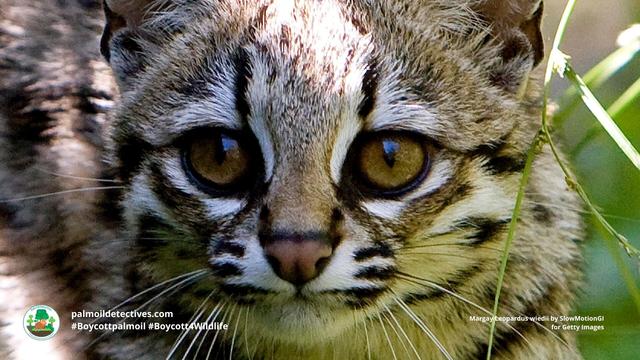Majestic #leopards are adaptable and a range over several continents, yet they're #extinct in places due to #palmoil #deforestation, #poaching and other threats. Help them every time you shop and #Boycottpalmoil 🌴🚫#Boycott4Wildlife
http://palmoildetectives.com/2021/03/11/leopard-panthera-pardus/
#Chimpanzees 🦍🐵🤎 are directly threatened by #palmoil and #poaching 🏹 42% of their range is great #palmoil land 🤮 SAY NO to #deforestation in #Congo 🇨🇩 #Liberia 🇱🇷 #Uganda 🇺🇬 when u #Boycottpalmoil 🌴🩸🚜🔥☠️⛔️#Boycott4Wildlife
http://palmoildetectives.com/2021/03/13/chimpanzee-pan-troglodytes/
Nigeria Risks Losing All Its African Forest Elephants – Here’s How To Protect Them
The numbers and ranges of forest #elephants in #Nigeria have declined greatly over time. The main cause of this has been human activity, like logging, palm oil and cocoa #agriculture, which threaten their survival by reducing their natural habitat. Some elephant populations have been lost. Others exist only in small, fragmented areas. A new study looks at what can be done to protect one of Nigeria’s most treasured #animal icons, the African forest elephant.
Numbers of African #Forest #Elephants 🐘🐘🐘 in #Nigeria have declined massively due to #palmoil #cocoa and #timber #deforestation, #poaching and farmers killing them for crop invasion. 😮😰Here’s how we protect them! #Boycott4Wildlife @palmoildetect https://wp.me/pcFhgU-8SD
Share to BlueSky Share to TwitterWritten by Rosemary Iriowen Egonmwan, Professor of Environmental Physiology of Animals, University of Lagos and Bola Oboh, Professor of Genetics, Department of Cell Biology and Genetics, University of Lagos. This article is republished from The Conversation under a Creative Commons license. Read the original article.
The numbers and ranges of elephants in Nigeria have declined greatly over time. The main cause of this has been human activity, like logging, palm oil and cocoa agriculture, which threaten their survival by reducing their natural habitat. Some elephant populations have been lost. Others exist only in small, fragmented areas.
Nigeria is one of 37 African countries where elephants are found in the wild. Savannah elephants (Loxodonta africana) can be found in the north and forest elephants (Loxodonta cyclotis) in the south.
It’s not clear how many elephants there are in Nigeria. Eighteen years ago, the African Elephant Study Report estimated that there were just 94 elephants left in the country. In 2021, it was estimated that there could be about 400 elephants in areas not systematically surveyed.
What we do know, however, is that the numbers and ranges of elephants in Nigeria have declined greatly over time. The main cause of this has been human activity, like logging and agriculture, which threaten their survival by reducing their natural habitat. Some elephant populations have been lost. Others exist only in small, fragmented areas.
African Forest Elephant surveys had not been carried out in southern Nigeria for over a decade, and sightings of forest elephants are rare. Forest elephants are of particular interest because they’re classified as Critically Endangered by the International Union for the Conservation of Nature.
We carried out a study to establish their presence and determine the factors affecting their conservation.
We visited four protected areas in two national parks and one forest reserve in southern Nigeria. We did find small populations, totalling 40 forest elephants. This is not a viable population in the long run as it has been suggested that “viable” elephant populations may range from 400 to 6,000 individuals.
Their survival is being threatened for six reasons, in particular the impact of people’s activities.
Presence and distribution of elephants
We visited Okomu National Park; Omo Forest Reserve; and the Okwango and Oban Divisions of the Cross River National Park.
Forest Elephants were caught on camera traps in the Omo Forest Reserve and Okomu National Park. They were sighted in the Okomu National Park and the Oban Division of the Cross River National Park. In the Omo Forest reserve, we found the charred bones of a poached elephant.
https://youtu.be/s584AP-BYm0?si=9HGXpoZVyYb7wAeV
Of the 40 identified using micro-satellite markers, seven were in Omo Forest Reserve, 14 from Okomu National Park, 11 from Oban Divison and eight from Okwango Division.
The future of these forest elephants looks precarious for a number of reasons.
The threats
Firstly, our study found evidence that pressure from human activity and changes in land use were influencing elephant distribution in the study locations. These were also contributing to habitat fragmentation and forest degradation.
We found that land within and around the protected areas we studied had been converted to settlements. It is also used for farming and monoculture plantations, where elephant food is limited. This has resulted in habitat loss and forest fragmentation, restricting the ranges of the elephant populations.
Second, the presence of hunters’ sheds, spent cartridges, traps and hook snares showed that illegal hunting persisted in all the study locations. We found the carcass of an elephant during the study. Hunting, as a threat to biodiversity conservation, has already been proven in studies of Kainji National Park, Okomu National Park and the Cross River National Park. Arrests don’t always deter offenders because the punitive measures aren’t heavy enough.
Thirdly, human-elephant conflict is pervasive. Elephants raided crops and destroyed property in and around the study locations. Most farmers in the surrounding communities lacked alternative sources of livelihood. Even small losses were of economic importance and led to negative attitudes towards conservation.
In the Okomu National Park – which lacks a buffer zone – we detected elephant activity outside the protected areas.
Fourthly, the distribution of the elephants in small groups means that they face a high risk of local extinction. The populations in the Omo Forest Reserve and the Okomu National Park are completely isolated. The protected areas are surrounded by farmlands and human settlements and the elephants don’t intermingle with other populations.
Fifth is the issue of forest degradation and shrinking of forest space. The Omo Forest Reserve is a Strict Nature Reserve – meaning it’s not open to tourism – and is one of Nigeria’s four biosphere reserves. But most of the forest is degraded and has reduced in size.
The final threat to elephants is that farmers were not paid compensation for crop losses arising from elephant raids in the study locations. This contributed to a negative attitude towards conservation. The Federal Government of Nigeria has no policy provision for compensation to farmers. The Aichi Biodiversity Targets encourage incentives as a means of safeguarding biodiversity.
Improving the conservation of elephants
Ecologically, elephants are a keystone species which have a massive impact on the ecosystem. Their loss would have an impact on the environment. Economically, they are drivers of tourism, and culturally they are icons of the African continent.
Here’s how we protect them
Awareness programmes, livelihood opportunities and compensation should be introduced to farmers. Together with acoustic deterrents and other mitigation methods used around the world, they could check losses due to crop raids.
Community conservation education and awareness programmes work. They should be rolled out to help change negative attitudes and get people to cooperate in conservation efforts.
In our study we observed that elephants avoided harming cocoa farms. In cases where elephants passed through them, the cocoa was not eaten. This behaviour was also reported at the Bossematié Forest Reserve, Côte d’Ivoire. This observation needs to be investigated to test whether cultivation of these crops could mitigate conflict between people and elephants.
Finally, a species management and monitoring plan should be put in place to help conserve Nigeria’s forest elephant populations. A nationwide survey, to assess the population of elephants in all ranges in Nigeria, should be top priority.
Written by Rosemary Iriowen Egonmwan, Professor of Environmental Physiology of Animals, University of Lagos and Bola Oboh, Professor of Genetics, Department of Cell Biology and Genetics, University of Lagos. This article is republished from The Conversation under a Creative Commons license. Read the original article.
ENDS
Learn about other animals endangered by palm oil and other agriculture
Global South America S.E. Asia India Africa West Papua & PNGBorneo Forest Dragon Gonocephalus bornensis
Orange-breasted Falcon Falco deiroleucus
Sunda Clouded Leopard Neofelis diardi
Glaucous Macaw Anodorhynchus glaucus
Attenborough’s Long-Beaked Echidna Zaglossus attenboroughi
Nancy Ma’s Night Monkey Aotus nancymaae
Learn about “sustainable” palm oil greenwashing
Read more about RSPO greenwashing
Lying Fake labels Indigenous Land-grabbing Human rights abuses Deforestation Human health hazardsA 2019 World Health Organisation (WHO) report into the palm oil industry and RSPO finds extensive greenwashing of palm oil deforestation and the murder of endangered animals (i.e. biodiversity loss)
Read moreTake Action in Five Ways
1. Join the #Boycott4Wildlife on social media and subscribe to stay in the loop: Share posts from this website to your own network on Twitter, Mastadon, Instagram, Facebook and Youtube using the hashtags #Boycottpalmoil #Boycott4Wildlife.
2. Contribute stories: Academics, conservationists, scientists, indigenous rights advocates and animal rights advocates working to expose the corruption of the palm oil industry or to save animals can contribute stories to the website.
Mel Lumby: Dedicated Devotee to Borneo’s Living Beings
Anthropologist and Author Dr Sophie Chao
Health Physician Dr Evan Allen
The World’s Most Loved Cup: A Social, Ethical & Environmental History of Coffee by Aviary Doert
How do we stop the world’s ecosystems from going into a death spiral? A #SteadyState Economy
3. Supermarket sleuthing: Next time you’re in the supermarket, take photos of products containing palm oil. Share these to social media along with the hashtags to call out the greenwashing and ecocide of the brands who use palm oil. You can also take photos of palm oil free products and congratulate brands when they go palm oil free.
https://twitter.com/CuriousApe4/status/1526136783557529600?s=20
https://twitter.com/PhillDixon1/status/1749010345555788144?s=20
https://twitter.com/mugabe139/status/1678027567977078784?s=20
4. Take to the streets: Get in touch with Palm Oil Detectives to find out more.
5. Donate: Make a one-off or monthly donation to Palm Oil Detectives as a way of saying thank you and to help pay for ongoing running costs of the website and social media campaigns. Donate here
Pledge your support#AfricanElephant #AfricanForestElephantLoxodontaCyclotis #Agriculture #animal #animalBehaviour #AnimalBiodiversityNews #animalCommunication #animalCruelty #animalExtinction #animalIntelligence #animalRights #biodiversity #Boycott4wildlife #climateChange #cocoa #deforestation #elephant #elephants #Forest #Nigeria #PalmOil #palmOilDeforestation #palmoil #poaching #timber #WestAfrica
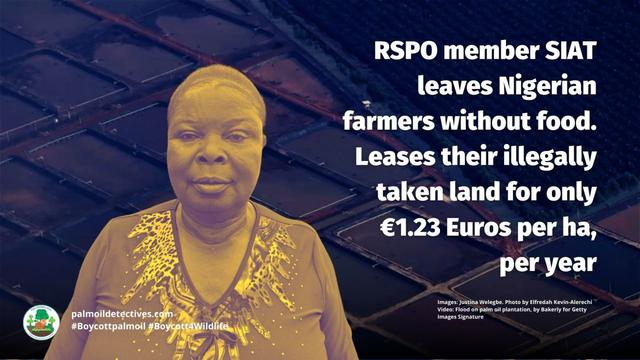
RSPO member SIAT leaves Nigerian farmers without food. Leases their illegally taken land for €1.23 Euros per hectare, per year
A 5-month investigation by Elfredah Kevin-Alerechi and Kevin Woke of Sahara Reporters reveals how RSPO member SIAT Nigeria Limited is involved in human rights abuses and land-grabbing on host commu…
Numbers of African #Forest #Elephants 🐘🐘🐘 in #Nigeria have declined massively due to #palmoil #cocoa and #timber #deforestation, #poaching and farmers killing them for crop invasion. 😮😰Here's how we protect them! #Boycott4Wildlife @palmoildetect
Orange-breasted Falcon Falco deiroleucus
Orange-breasted Falcon Falco deiroleucus
Near Threatened
Extant (resident)
Belize; Venezuela, Bolivia
Extant (possibly breeding)
Argentina; Bolivia, Brazil; Colombia; Ecuador; Guatemala; Guyana; Honduras; Mexico; Nicaragua; Panama; Paraguay; Peru; Suriname; Trinidad and Tobago.
Possibly extinct
Costa Rica
The vibrant Orange-breasted #Falcon Falco deiroleucus soars through the skies of Central and #SouthAmerica. With their striking orange and black plumage and powerful and agile hunting skills, these falcons are truly a marvel to behold. Sadly, these #birds face significant threats from #palmoil, #goldmining, #soy and #meat deforestation. You can help protect these magnificent birds every time you shop. Make sure that you #BoycottPalmOil #BoycottGold and #BoycottMeat to help them survive! It’s the #Boycott4Wildlife.
https://youtu.be/fO7KLTqyS68?si=qKAa5kr9DecSXzMz
Powerful rulers of the skies in #Colombia #Brazil and #Ecuador, Orange-breasted Falcons 🦅 face threats from #palmoil #meat #soy and #gold #deforestation across their range. Fight for them when you shop #Boycottpalmoil 🚫#BoycottGold 🪙 #Boycott4Wildlife🌳 https://wp.me/pcFhgU-8tM
Share to BlueSky Share to TwitterDYK Orange-breasted 🦅 Falcon’s striking orange 🧡 and black 🖤 plumage helps their courtship displays? 💕Sadly, these beautiful #birds are under threat from #palmoil #soy and #gold #deforestation. Help them and #BoycottPalmOil #Boycott4Wildlife 🌍✨ https://wp.me/pcFhgU-8tM
Share to BlueSky Share to TwitterAppearance & Behaviour
These falcons are known for their incredible hunting prowess. They are agile fliers, capable of high-speed pursuits and sudden, sharp turns to catch their prey. Their striking orange and black plumage not only serves as a visual treat but also plays a role in their courtship displays.
The Orange-breasted Falcon is a medium-sized bird of prey, measuring about 35-40 cm (14-16 inches) in length. Males weigh between 325-425 grams (11-15 ounces), while females are larger, weighing between 550-700 grams (19-25 ounces). Their distinctive plumage features a rich and vibrant coloured orange breast that contrasts to their black wings and back. Both sexes have similar plumage, but females are larger. These falcons are known for their robust and stocky build and large heads and talons, which make them powerful hunters stalking the skies.
Threats
- Deforestation for palm oil, soy, gold mining and cattle ranching
- Human persecution and hunting
- Pesticide use in agriculture, which affects their prey base
- Competition for nest sites with Black Vultures
- Impact of Africanised bees on nesting sites
Empower yourself to make a difference. Together, we can fight for the survival of the Orange-breasted Falcon by making mindful choices. #BoycottPalmOil and support wildlife-friendly products. Share this page and join the movement to protect our precious wildlife. #BoycottPalmOil #Boycott4Wildlife
Habitat
The Orange-breasted Falcon is found in tropical forests and savannas across Central and South America, from southern Mexico to northern Argentina. They prefer habitats with tall trees and open spaces that allow for their high-speed hunting. They are most commonly found in Belize, Guatemala, and Panama, though their range has significantly reduced over time.
Diet
These falcons are carnivorous, primarily feeding on other birds and small mammals. They are skilled hunters, often capturing prey mid-flight with their sharp talons. Their diet includes a wide variety of birds and occasionally bats.
Mating and breeding
Orange-breasted Falcons typically nest in tall trees or on cliff ledges. They lay 2-3 eggs, which are incubated by the female for about 30-34 days. Both parents are involved in feeding and caring for the chicks until they are ready to fledge, approximately 40-45 days after hatching.
Support Orange-breasted Falcon by going vegan and boycotting palm oil, gold and meat when you shop, it’s the #Boycott4Wildlife
Support the conservation of this species
This animal has no protections in place. Read about other forgotten species here. Create art to support this forgotten animal or raise awareness about them by sharing this post and using the #Boycottpalmoil #Boycott4Wildlife hashtags on social media. Also you can boycott palm oil in the supermarket.
Further Information
BirdLife International. 2016. Falco deiroleucus. The IUCN Red List of Threatened Species 2016: e.T22696516A93569126. https://dx.doi.org/10.2305/IUCN.UK.2016-3.RLTS.T22696516A93569126.en. Accessed on 05 June 2024.
Orange-breasted Falcon. (2024). In Wikipedia. Retrieved June 5, 2024, from https://en.wikipedia.org/wiki/Orange-breasted_falcon
How can I help the #Boycott4Wildlife?
Take Action in Five Ways
1. Join the #Boycott4Wildlife on social media and subscribe to stay in the loop: Share posts from this website to your own network on Twitter, Mastadon, Instagram, Facebook and Youtube using the hashtags #Boycottpalmoil #Boycott4Wildlife.
2. Contribute stories: Academics, conservationists, scientists, indigenous rights advocates and animal rights advocates working to expose the corruption of the palm oil industry or to save animals can contribute stories to the website.
Mel Lumby: Dedicated Devotee to Borneo’s Living Beings
Anthropologist and Author Dr Sophie Chao
Health Physician Dr Evan Allen
The World’s Most Loved Cup: A Social, Ethical & Environmental History of Coffee by Aviary Doert
How do we stop the world’s ecosystems from going into a death spiral? A #SteadyState Economy
3. Supermarket sleuthing: Next time you’re in the supermarket, take photos of products containing palm oil. Share these to social media along with the hashtags to call out the greenwashing and ecocide of the brands who use palm oil. You can also take photos of palm oil free products and congratulate brands when they go palm oil free.
https://twitter.com/CuriousApe4/status/1526136783557529600?s=20
https://twitter.com/PhillDixon1/status/1749010345555788144?s=20
https://twitter.com/mugabe139/status/1678027567977078784?s=20
4. Take to the streets: Get in touch with Palm Oil Detectives to find out more.
5. Donate: Make a one-off or monthly donation to Palm Oil Detectives as a way of saying thank you and to help pay for ongoing running costs of the website and social media campaigns. Donate here
Pledge your supportLearn about other animals endangered by palm oil and other agriculture
Global South America S.E. Asia India Africa West Papua & PNGOrange-breasted Falcon Falco deiroleucus
Sunda Clouded Leopard Neofelis diardi
Glaucous Macaw Anodorhynchus glaucus
Attenborough’s Long-Beaked Echidna Zaglossus attenboroughi
Nancy Ma’s Night Monkey Aotus nancymaae
Maned Wolf Chrysocyon brachyurus
Learn about “sustainable” palm oil greenwashing
Read more about RSPO greenwashing
Lying Fake labels Indigenous Land-grabbing Human rights abuses Deforestation Human health hazardsA 2019 World Health Organisation (WHO) report into the palm oil industry and RSPO finds extensive greenwashing of palm oil deforestation and the murder of endangered animals (i.e. biodiversity loss)
Read more#animals #Belize #Bird #birdOfPrey #birds #Boycott4wildlife #BoycottGold #BoycottMeat #BoycottPalmOil #Brazil #Colombia #deforestation #Ecuador #Falcon #ForgottenAnimals #gold #goldmining #Guatamala #Honduras #hunting #meat #meatAndSoyDeforestationInBrazil #Mexico #NearThreatenedSpecies #OrangeBreastedFalconFalcoDeiroleucus #PalmOil #palmOilDeforestation #palmoil #poaching #SouthAmericaSpeciesEndangeredByPalmOilDeforestation #SouthAmerica #soy #soyDeforestation #Suriname #Venezuela #VulnerableSpecies
Maltese Falcon Poachers: European hunters endanger Egypt’s birds https://news.mongabay.com/2025/04/maltese-falcon-poachers-european-hunters-endanger-egypts-birds/
#Egypt #Europe #environment #wildlife #birds #hunting #poaching
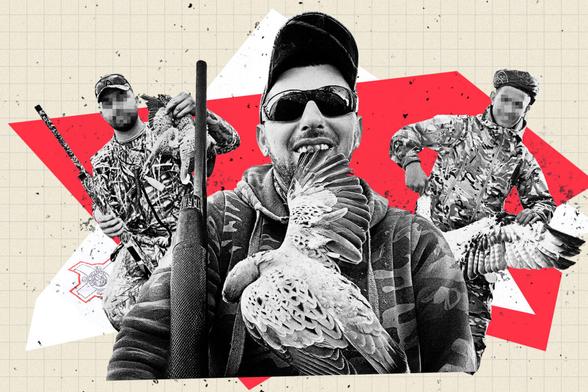
Maltese Falcon Poachers: European hunters endanger Egypt’s birds
The New Arab and The Shift co-published a set of edited versions of this investigation. As the sun hung low over the Nile, casting golden ripples across the water, we navigated Lake Nasser. The air carried whispers of wings overhead, the soft rustle of migratory birds seeking refuge during their epic winter journey from Europe […]
